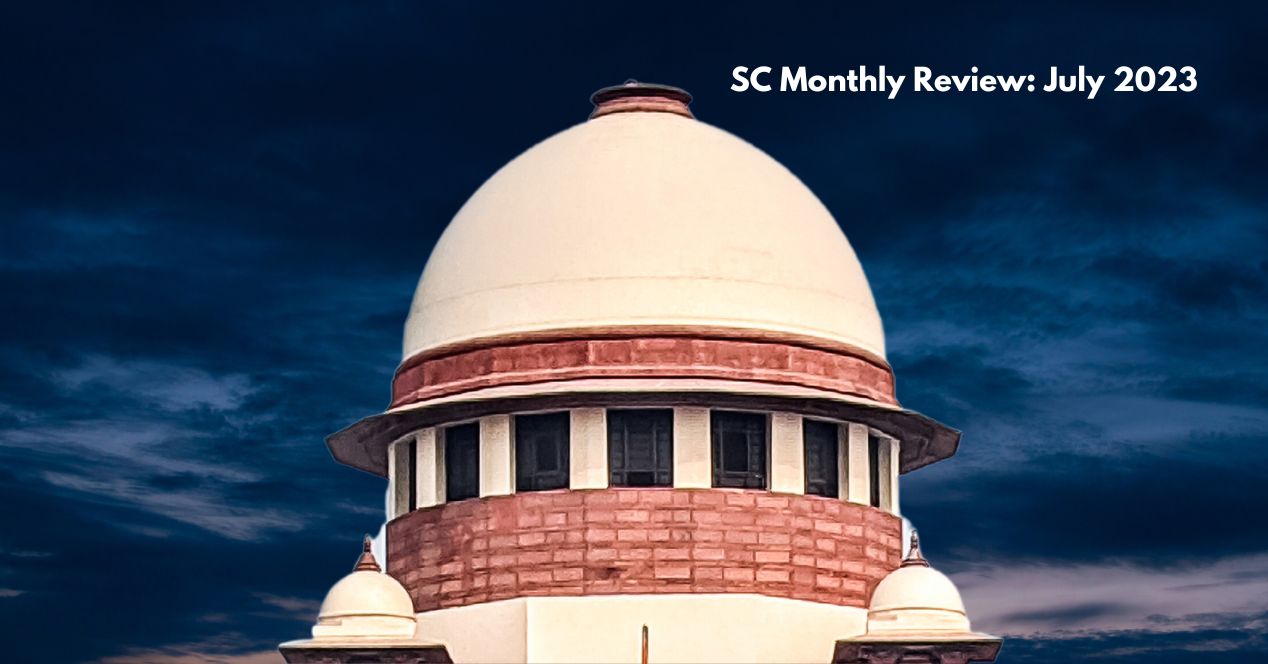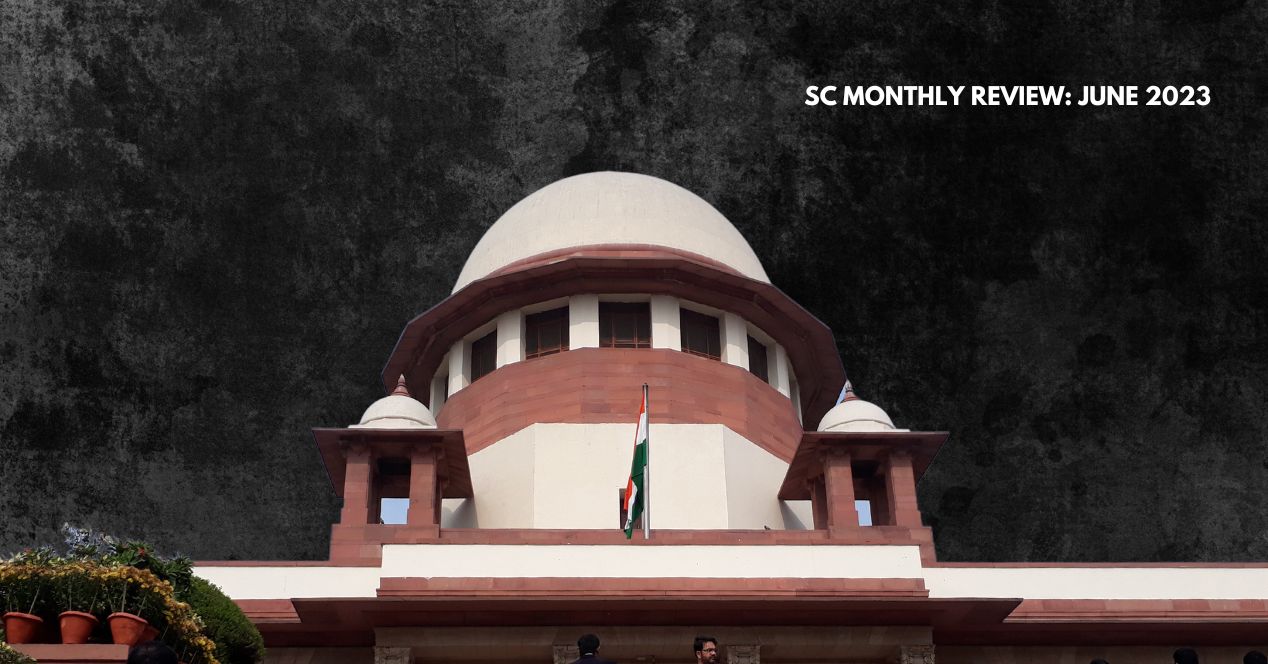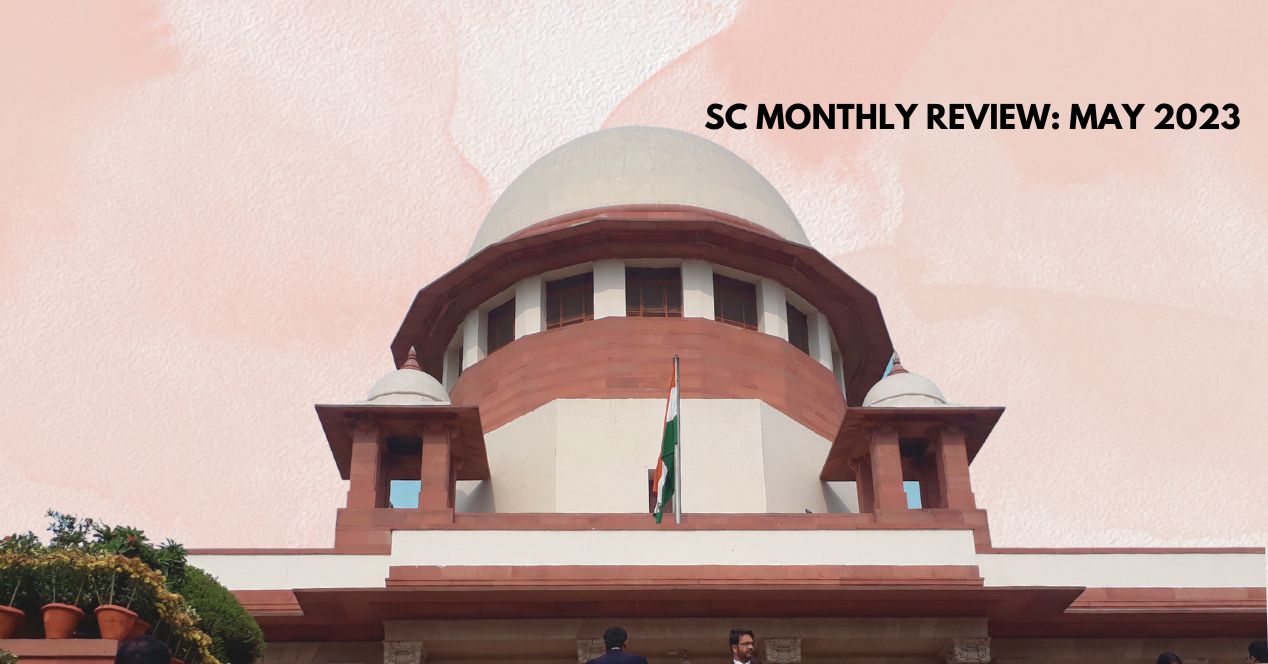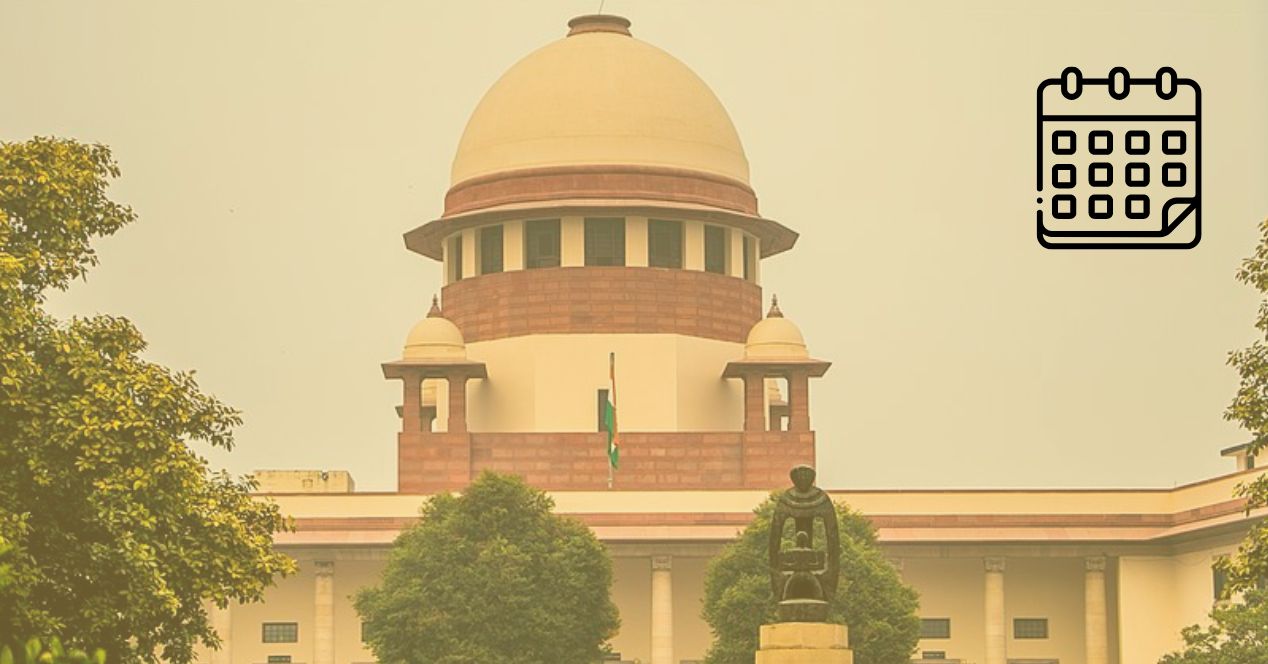Analysis
Monthly Review: August 2023
In August, amid constitutional benches and regular hearings, the SC continued to push major institutional reforms.
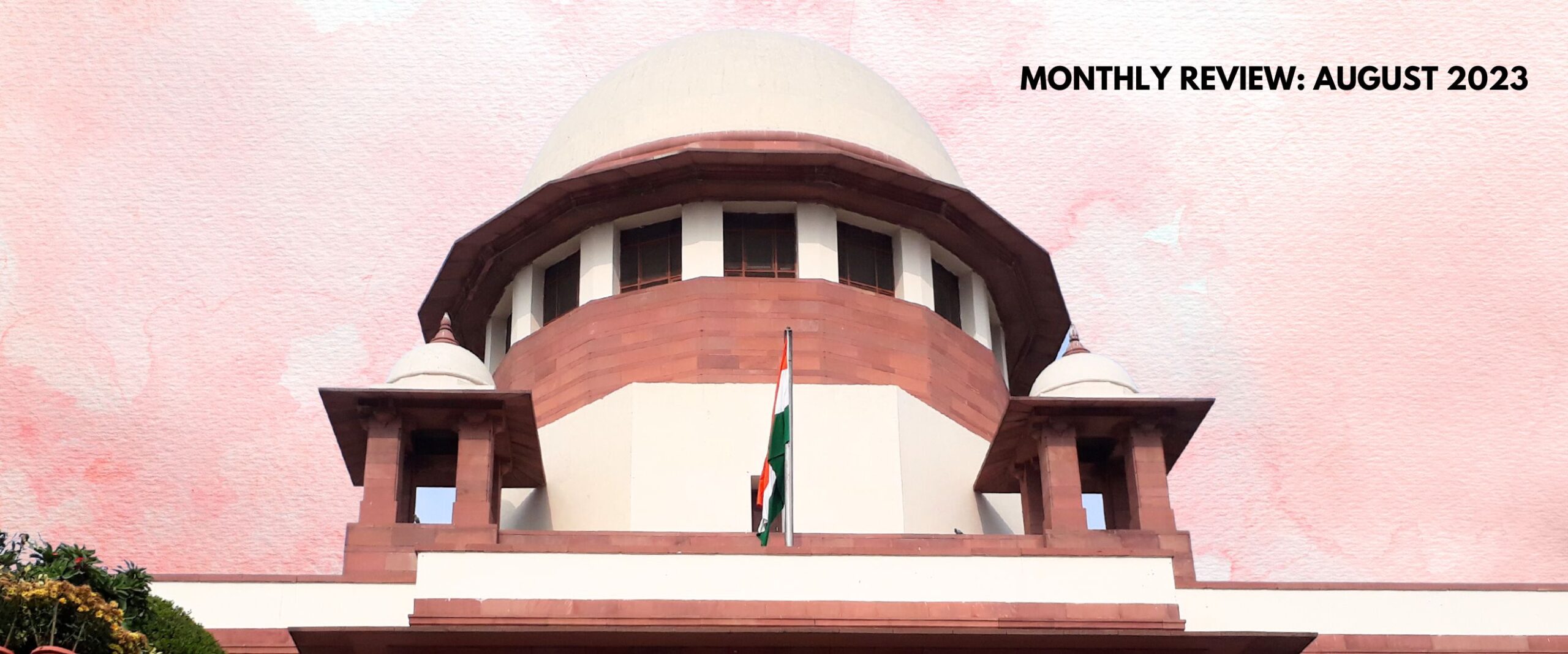
In August 2023, the Supreme Court was in the midst of the abrogation of Article 370 Constitution Bench, early remission in the Bilkis Bano case, and concerns over the ongoing Manipur violence. A troubling pattern of bills contradicting Supreme Court judgments, with the Digital Personal Data Protection Act, of 2023 elicited a mixture of optimism and concern. The Court’s focus on gender justice and other broader reforms was evident.
Article 370: Unraveling Arguments and Implications
On 2 August 2023, a Constitution Bench started hearing the challenge to abrogation of Article 370, which stripped Jammu and Kashmir of its special status. 22 petitioners, represented by 17 counsels including Senior Advocates Kapil Sibal and Gopal Subramanium, argued that Article 370 was intended to be a permanent feature of the Constitution, immune to executive decisions. They contended that parliament could not take the place of the J&K constituent assembly for proposing abrogation and that the reorganisation of J&K into two Union Territories dismantled the state’s autonomy. The petitioners also contended that the President’s Rule was misused and that the abrogation violated minority rights. Article 370, they argued, reflected a tailored form of federalism. Therefore, its abrogation required a “meeting of minds” between the government of J&K and the Union. Our matrix gives a quick snapshot of the petitioner’s arguments.
Abrogation of Article 370 is seen by some experts as compromising the J&K Instrument of Accession (IoA) and potentially endangering special arrangements in other states as well.
On 24 August 2023, Solicitor General Tushar Mehta commenced arguments for the Union in support of the abrogation. He claimed that the Constitution of J&K was merely an Act providing internal governance and that Article 370 was a temporary provision that promoted a “psychological duality” that was being taken advantage of by “forces against India.” Further, he claimed that the reorganisation of J&K into Union Territories was constitutional and benefitted the people of J&K.
Bilkis Bano: SC continues hearing arguments on the Premature release of convicts
On 4 August 2023, a division bench of Justices B.V. Nagarathana and Ujjal Bhuyan started hearing arguments on the premature release of the Bilkis Bano gang rape convicts. Advocate Shoba Gupta, appearing for Bilkis Bano, argued that the Gujarat government was wrong to grant remission for such a heinous crime.
Additional Solicitor General S.V. Raju, appearing for the Gujarat Government, argued that the remission was valid according to the State’s 1992 Remission policy. Senior Advocate Sidharth Luthra and Advocate Rishi Malhotra, for the convicts, challenged the numerous PILs in the case for lacking legal standing. The petitioners however maintained that their PILs were valid as the remission was a matter of public interest.
Mitigation of Violence in Manipur
On 7 August 2023, a Bench led by CJIChandrachud set up oversight mechanisms for criminal and humanitarian investigations regarding Manipur violence.
On 21 August 2023, an expert committee led by Justice Gita Mital submitted three reports on the reconstruction of lost documents, improved compensation schemes and the appointment of domain experts to oversee several aspects of the ongoing crisis.
On 25 August 2023, the Bench ordered 27 cases being investigated by CBI be transferred to Assam session judges due to “security issues”.
Rahul Gandhi’s Criminal Defamation Case
On 4 August 2023, Justice B.R. Gavai led a Bench which held that the two-year imprisonment awarded to Rahul Gandhi for the Modi surname remark was excessive and devoid of reason. The Bench stayed the trial court’s conviction [and his disqualification from the Assembly] until the case was heard on merits. Rahul Gandhi was reinstated to the Lok Sabha on 7 August 2023.
Controversial Legislative Enactments
On 11 August 2023, the President gave assent to the Government of NCT (Amendment) Bill, 2023. The Bill replaced the controversial Government of NCT (Amendment) Ordinance, 2023 conferring all powers to make laws over ‘services,’ to the Union, through the Lieutenant Governor of Delhi. The Act and Ordinance established the National Capital Civil Service Authority consisting of the Chief Minister and two Union-appointed members. Both are broadly similar with few discrepancies. Read our matrix to find out the key differences.
On 12 August 2023, the Union proposed a bill for appointment of election commission members, that potentially nullifies another SC judgement. The bill prescribed a three-member committee consisting of the Prime Minister, a PM-appointed Union minister and the Leader of the Opposition to recommend EC members’ appointment. The bill is in contrast to a March 2023 Judgement which recommended that CJI should be part of the three-member committee.
India’s Digital Data Protection Act: Safeguarding Privacy or Missing the Mark?
On 11 August 2023, the Digital Personal Data Protection Act, of 2023, which aims to structuralise the safeguarding of personal data finally received the President’s assent after multiple delays since 2018.
However, it is argued that the Act missed an opportunity to safeguard privacy for marginalized groups. The Act’s final version lacks protections for “sensitive personal data”, earlier found in the 2019 draft. To know more refer to our five must-reads where we curate a list of articles that critically evaluate the Act.
Transformative Institutional Reforms: Technology and Gender Justice Initiatives in the Supreme Court
On 16 August 2023, the Supreme Court released a Handbook on Combating Gender Stereotypes. The 30-page guide aims to dismantle harmful gender stereotypes embedded within legal language. However, some critics argue that the handbook fails to advocate a more intersectional approach.
During CJI Chandrachud’s tenure, we saw a series of ambitious reforms, including the initiation of a new phase in the e-courts project. Efforts have been made to streamline processes like early hearings and transition to paperless courtrooms. But, the success of these changes depends on the willingness of the legal community to embrace them.

